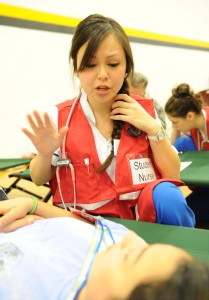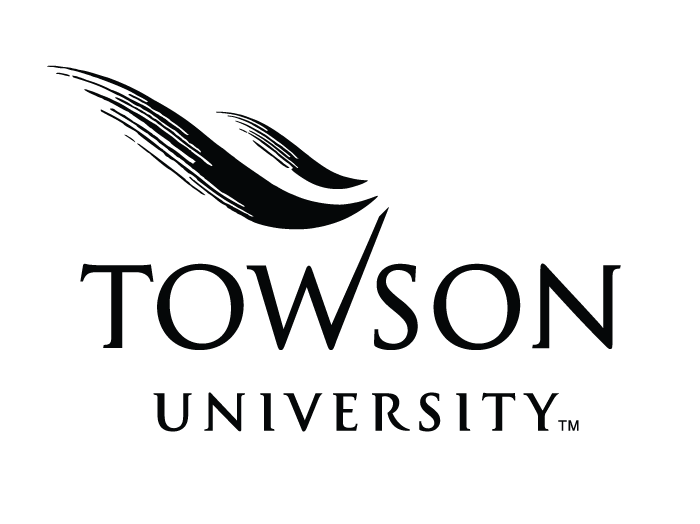
Nursing students provided treatment to dozens of victims, suffering from a range of simulated injuries.
Nursing students at Towson University received real-time, hands-on emergency experience, as the College of Health Professions conducted its annual on-campus Mass Casualty Exercise last week.
Otherwise known as Operation STAT, the event simulates an emergency scenario for dozens of nursing students, who “treat” victims suffering from simulated injuries ranging from mild—small cuts and bruises—to serious, like head trauma, third-degree burns and compound fractures.
This year, 80 middle schoolers from Friends School of Baltimore joined the event, volunteering as mock victims. Their first stop was the moulage station, where student and staff volunteers applied bandages, makeup, rubber and red corn syrup to simulate injuries.
Casualties were then herded to the triage unit, where nursing students waited. Each patient was escorted to a cot, where his or her injury and medical history was analyzed by a team of at least two nurses. After a quick discussion, each patient was offered appropriate treatment, whether that be a bandage, oxygen administration, intravenous fluids or even shock trauma transport.
“They think they know what to do because they have it all written out, they’ve written a paper on it, they’ve observed it,” Assistant Professor Lisa Crabtree explains to CBS Baltimore.
“But when they get in the actual scenario and they actually have to do something, they don’t realize how much time it takes or the emotions that are involved in that or how they have to interact with the actual patient.”
“You have to figure out what do to and what to do first,” says Laura Reese, a nursing student.
- See video of the event, courtesy of CBS Baltimore.
Joppatowne High School and the Maryland Military Department also contributed to Operation STAT. The exercise served as a valuable teaching tool for both students, who gained invaluable experience, and the community, which learned how best to cope with large-scale catastrophes.
